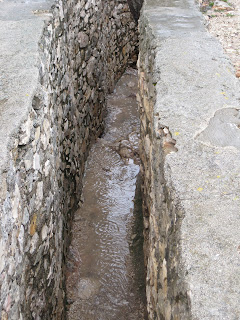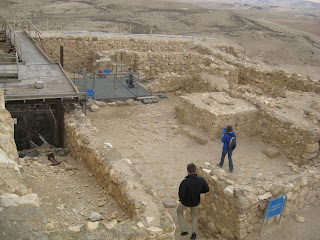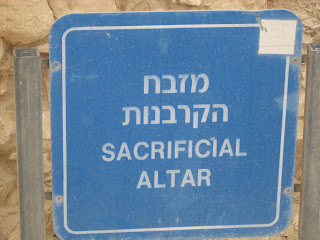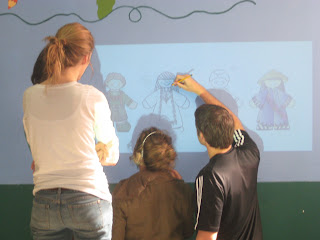“Some years
ago, it was my privilege to visit the country of Morocco as part of an official
United States government delegation. As part of that visit, we were invited to
travel some distance into the desert to visit some ruins. Five large black
limousines moved across the beautiful Moroccan countryside at considerable
speed. I was riding in the third limousine, which had lagged some distance
behind the second. As we topped the brow of a hill, we noticed that the
limousine in front of us had pulled off to the side of the road. As we drew
nearer, I sensed that an accident had occurred and suggested to my driver that
we stop. The scene before us has remained with me for these many years.
“An old shepherd, in the long, flowing
robes of the Savior’s day, was standing near the limousine in conversation with
the driver. Nearby, I noted a small flock of sheep numbering not more than
fifteen or twenty. An accident had occurred. The king’s vehicle had struck and
injured one of the sheep belonging to the old shepherd. The driver of the
vehicle was explaining to him the law of the land. Because the king’s vehicle
had injured one of the sheep belonging to the old shepherd, he was now entitled
to one hundred times its value at maturity. However, under the same law, the
injured sheep must be slain and the meat divided among the people. My
interpreter hastily added, “But the old shepherd will not accept the money.
They never do.”
“Startled, I asked him why. And he
added, “Because of the love he has for each of his sheep.” It was then that I
noticed the old shepherd reach down, lift the injured lamb in his arms, and
place it in a large pouch on the front of his robe. He kept stroking its head,
repeating the same word over and over again. When I asked the meaning of the
word, I was informed, “Oh, he is calling it by name. All of his sheep have a
name, for he is their shepherd, and the good shepherds know each one of their
sheep by name.”
“It was as my driver predicted. The
money was refused, and the old shepherd with his small flock of sheep, with the
injured one tucked safely in the pouch on his robe, disappeared into the
beautiful deserts of Morocco.
“As we continued our journey toward the
ruins, my interpreter shared with me more of the traditions and practices of
the shepherds of that land. Each evening at sundown, for example, the shepherds
bring their small flocks of sheep to a common enclosure where they are secured
against the wolves that roam the deserts of Morocco. A single shepherd then is
employed to guard the gate until morning. Then the shepherds come to the
enclosure one by one, enter therein, and call forth their sheep—by name. The
sheep will not hearken unto the voice of a stranger but will leave the
enclosure only in the care of their true shepherd, confident and secure because
the shepherd knows their names and they know his voice.
“The words of the Master Shepherd rang
loudly in my ears: “But he that entereth in by the door is the shepherd of the
sheep. “To him the porter openeth; and
the sheep hear his voice: and he calleth his own sheep by name, and leadeth
them out. “And when he putteth forth his
own sheep, he goeth before them, and the sheep follow him: for they know his
voice. “And a stranger will they not
follow, but will flee from him: for they know not the voice of strangers” (John
10:2–5) (Elder John R. Lassater, “Shepherds of Israel, Ensign, May 1988, p. 74)


















































































